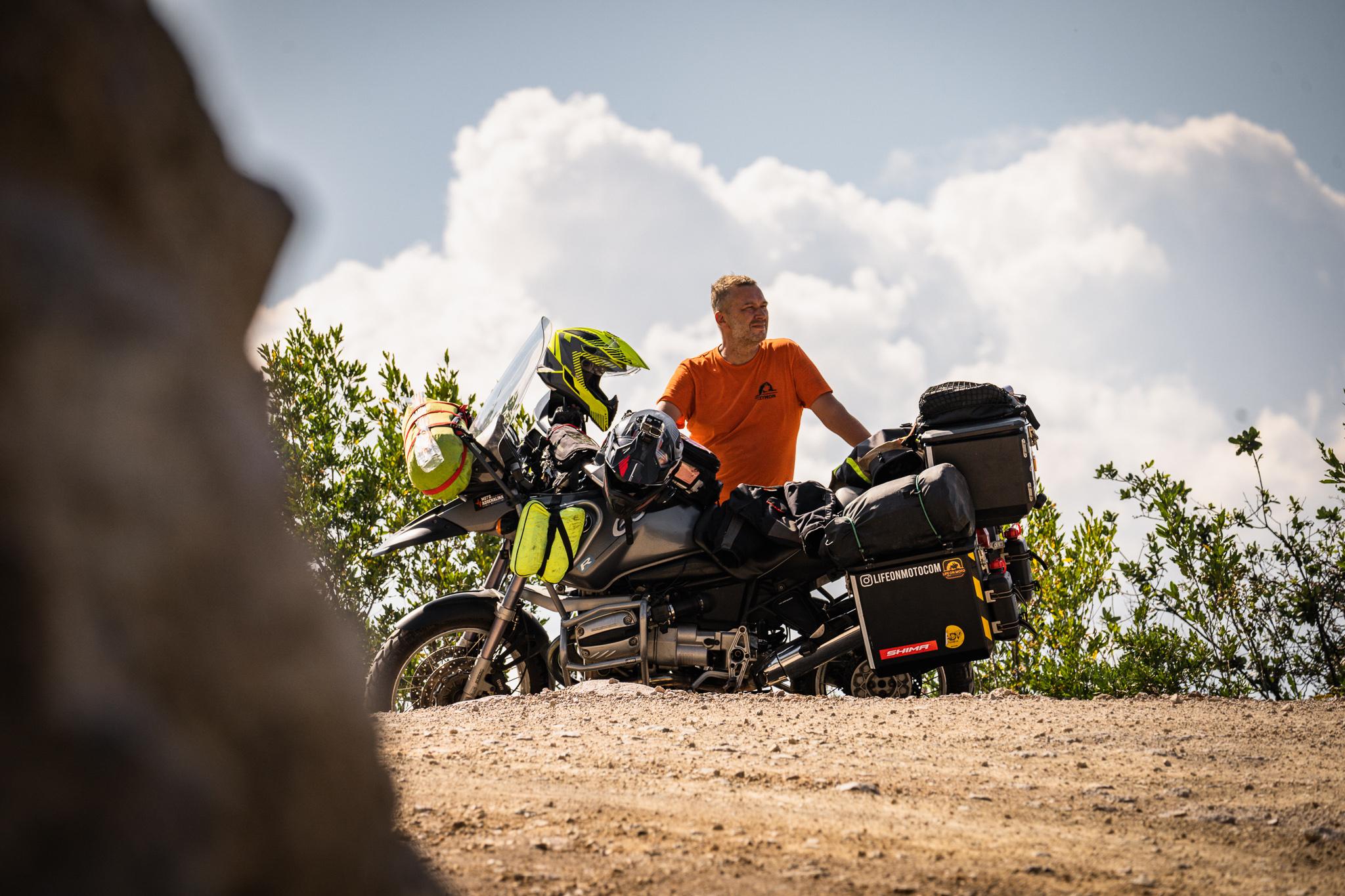Our preparations for the motorcycle trip around the Americas were not limited to the equipment and gear we took with us. These were certainly important stages, but by far the most important for us was, and still is, our health. We spent a lot of time looking through various forums and travel blog posts, read about a whole lot of adventures – the good and the bad, about accidents, illnesses, taking care of our health on the road. And now that we’ve made it through this stage of preparation ourselves, we’ve decided to share the information we’ve gathered and our knowledge with you.
HOW TO TAKE CARE OF YOUR HEALTH BEFORE THE TRAVEL – VISITING THE DOCTOR
Where do you start your preparations? It is known, good research, getting to know the countries we are going to, their climate and conditions is a very important part of travel preparations, but the most important in our opinion is to make an appointment to see a travel medicine doctor. It is definitely not worth trying to save money on this, because firstly, if we vaccinate, such a visit will still be mandatory, and secondly, the doctor will tell us about all the ailments and diseases to which we are exposed. He will advise on how to protect ourselves and what to do in crisis situations. He will explain when to take medication and when to start seeking specialized help. He will prescribe the appropriate prescriptions for medications and develop a plan for vaccinations, as unfortunately some of them are mandatory.
We ourselves, despite decent research before the visit and digging through really large amounts of material on the Internet, had dozens of questions and doubts. Fortunately, we ended up with a super doctor, who even under hours, answered our emails with questions. If anyone was looking for a good and committed travel medicine doctor in Poland, we recommend making an appointment with Dr. Justyna Janocha-Litwin.
TRAVEL HEALTH – A WELL-EQUIPPED FIRST AID KIT
The next step was to complete a first aid kit. How important a first aid kit is, everyone probably knows very well. We, like anyone going to the tropics, in addition to its standard equipment, had to stock up on many different medicines that we hope we won’t have to take, but we take them because they can save our ass in places where we won’t necessarily get immediate medical help.
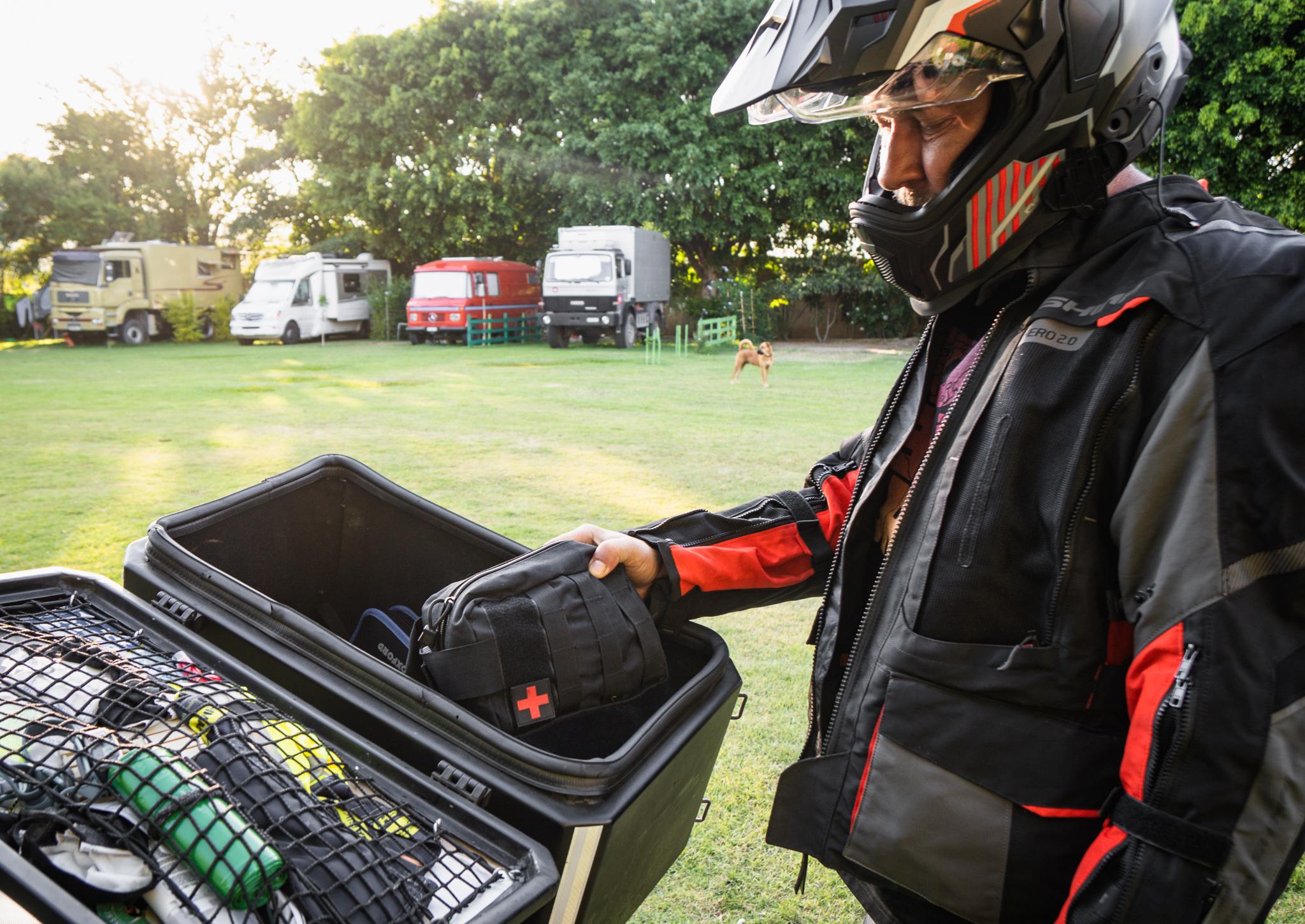
MEDICATIONS PRESCRIBED BY A DOCTOR
- Xifaxan – a drug for food poisoning, which is unfortunately very popular among people traveling from developed to developing countries.
- Macromax – a drug for respiratory tract infections, bronchitis, otitis media. In general, this is a broad-spectrum antibiotic for the upper respiratory tract.
- Monural – medicine for cystitis, who has ever been sick knows how unpleasant it is.
- Oflodinex – eye drops with broad antibacterial action.
- Flucofast – a drug for fungal infections of the intimate zones, because we realize that hygienic conditions in some places can be much lower than our standards.
- Falcimar – a drug for malaria, which we have in case of the first symptoms of malaria.
- Nimesil – a drug for inflammation, including of the spine and painful menstruation.
- Avamys – a spray for sinusitis, which is problematic in our case.
MEDICINES TO BUY WITHOUT A PRESCRIPTION AND FIRST AID
- Stoperan – a drug for diarrhea, in fact, any that contains loperamide will be ok.
- Furagin – a drug for cystitis.
- Xylorin – very good nasal drops, but they are very damaging to the mucous membrane, so they should not be abused.
- Ziaja D-Panthenol – sunburn cream, generally anything panthenol-based will be fine.
- Vizik – moisturizing eye drops, useful when you travel for a long time in dry climates.
- Aspirin, Apap, Ibuprom – each contains different active ingredients – acetylsalicylic acid, paracetamol and ibuprofen, respectively.
- Zyrtec UCB – or any other allergy medication.
- Espumisan – a drug for bloating and digestive problems.
- Activated charcoal – you can always try to treat diarrhea with natural remedies, although you have to be careful, because charcoal absorbs literally everything, both toxins and other medications.
- Electrolytes in tablets – we took tablets, but you might as well prepare such an isotonic on your own by mixing a liter of water with 6 teaspoons of sugar and 1/2 teaspoon of salt. You can also add lemon or orange juice.
- PROFTIN – M – anti-fungal and anti-bacterial foot powder – after days in motorcycle boots, it is worth taking better care of foot hygiene.
- Sudocrem – for abrasions and burns on the thighs, which are not among the most pleasant, and unfortunately happen. Ordinary talcum powder will also be good, plus it will come in handy when replacing an inner tube. :))
- Octanisept – wound disinfectant.
- Liquid and wipes for hand disinfection.
- Syringes.
- Compresses and dressings of various sizes.
- Elastic bandages, non-elastic bandages, bandages of various widths.
- Band-aids, wound closure patches, patch in a roll.
- A good thermometer – after many attempts to buy a good electronic thermometer (which didn’t work out), we brought along an old mercury thermometer that we had left over from the days when they were available.
- Scissors, gloves, tweezers, masks, a sling, a blanket, a mask to guide mouth-to-mouth breathing.
- Water purification tablets.
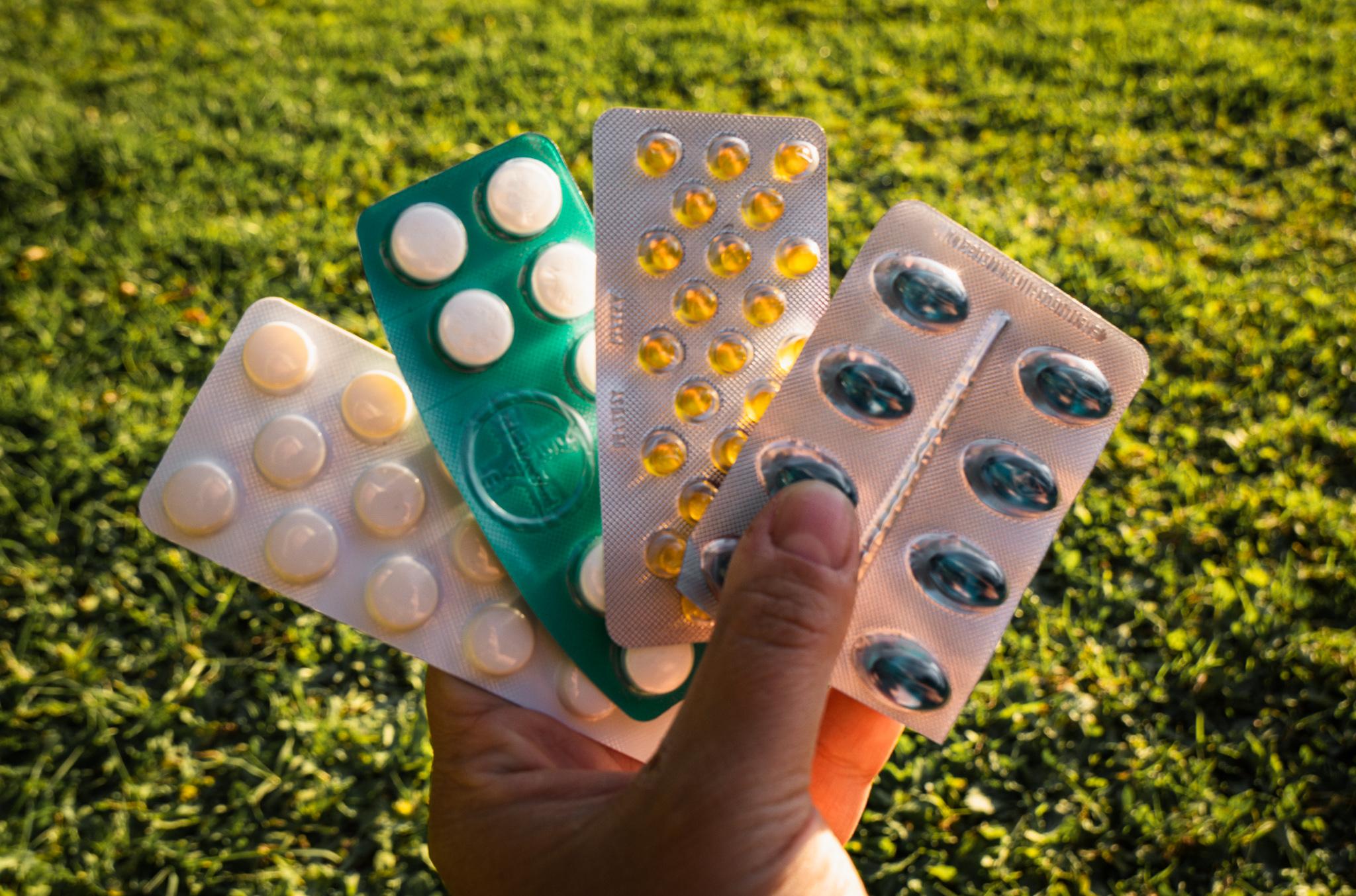
We have not written about the medications we take individually, but this is a known matter. The important thing is that if we take a larger supply of them, it is good to get a certificate from the doctor about taking them. Our first aid kit did not include sore throat pills, we never use them, because tea with lemon has always been the best, motion sickness pills, because we tolerate the ferry ride extremely well, and medicine for altitude sickness, because in the first stage of our trip (Mexico – Colombia), we will not need them.
We carry the first aid kit prepared in this way in the center trunk, so that it is easily accessible in case of need. And it’s a good practice, because even though we don’t use it too often, it’s necessary to have it at hand in case of an accident, and not somewhere at the bottom of the trunk. We also included a piece of paper (in Spanish and English) in the first aid kit with our data, blood type and contact information for relatives from Poland. If someone has a chronic condition, it’s worth writing about that as well.
TRAVEL HEALTH – TRAVELER’S DIARRHEA, FOOD POISONING
More or less acute gastrointestinal problems are perhaps the most common affliction we encounter when traveling to countries with oppressive climatic conditions and much lower sanitary standards. Usually bacteria are to blame, but sometimes parasites and viruses as well. Fortunately, most of them are bacterial in origin and the symptoms pass on their own or with the help of light supportive drugs such as loperamide. In more severe cases, where, for example, the diarrhea does not go away, there is no improvement after antibiotics, or there are additional symptoms, the help of a doctor is needed to determine the cause. Some cases, such as viral diarrhea, require hospitalization.
- We can minimize the risk of food poisoning and intestinal problems by following a few rules.
- The most important is food, water and hand hygiene.
- Before each meal, we should wash our hands with soap and water, or if soap is not available, with antibacterial gel or wipes.
- Drink only bottled or boiled water. If we do not have the opportunity to boil it, we should use water purification tablets. Although we know from our experience and from the stories of other motorcycle travelers that such situations are really rare.
- We do not buy drinks and beverages with ice. Ice is usually made from tap water, while the locals probably won’t be harmed, we could end up with diarrhea for days.
- We avoid eating food that looks stale or is prepared under eminently poor conditions. All the books and pamphlets on travel health, suggest in general to avoid eating in small local eateries and street food, but for us it’s part of the trip, so it will be rather hard for us to completely comply with this point.
- We try to avoid eating raw fish, seafood and unpasteurized cheese.
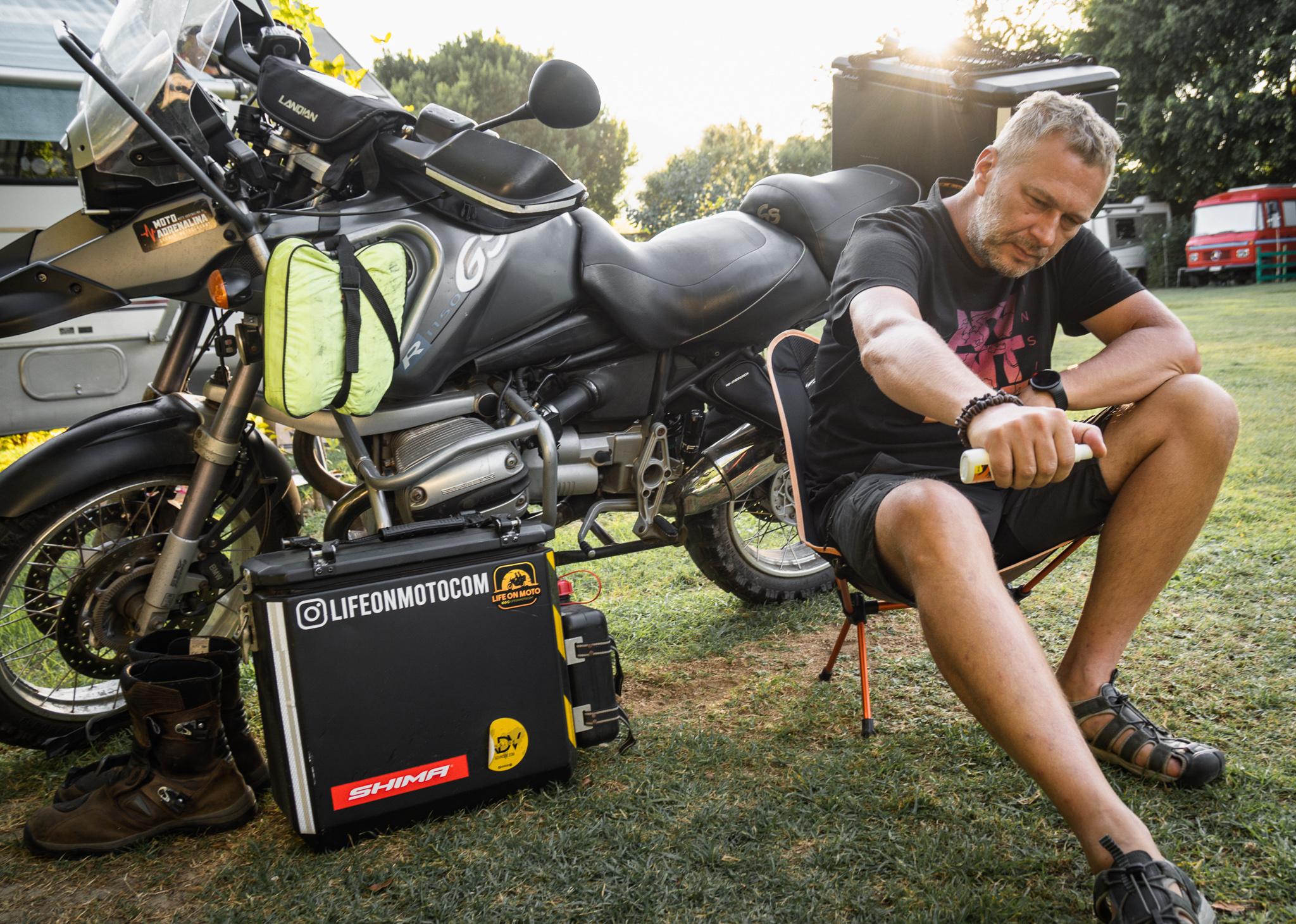
MALARIA, DENGUE FEVER, ZIKA
Unfortunately, medicine has still not developed vaccines for any of the diseases mentioned above, and even in the 21st century malaria is taking a bloody toll, especially in African countries. Malaria is a parasitic disease caused by mosquitoes, which transmit malaria spores to humans when they bite. There are several strains, which vary somewhat in incubation period and symptoms, but certainly the main one for all of them is a very high fever, which usually alternates with cold phases. Below we toss you an overview map of malaria incidence around the world.

Dengue and Zika are other diseases transmitted to humans during a mosquito bite. They are not as dangerous as malaria, but certainly should not be underestimated because of it. The symptoms are similar, as high fever, joint pains and, as with malaria, no vaccines exist. Therefore, if you experience a very high fever or other worrisome symptoms, it is wise to consult a doctor right away. If we suspect we have contracted malaria in places where access to health care is difficult, we have medication with us, prescribed by a doctor, which will give us a little more time to get to the hospital.
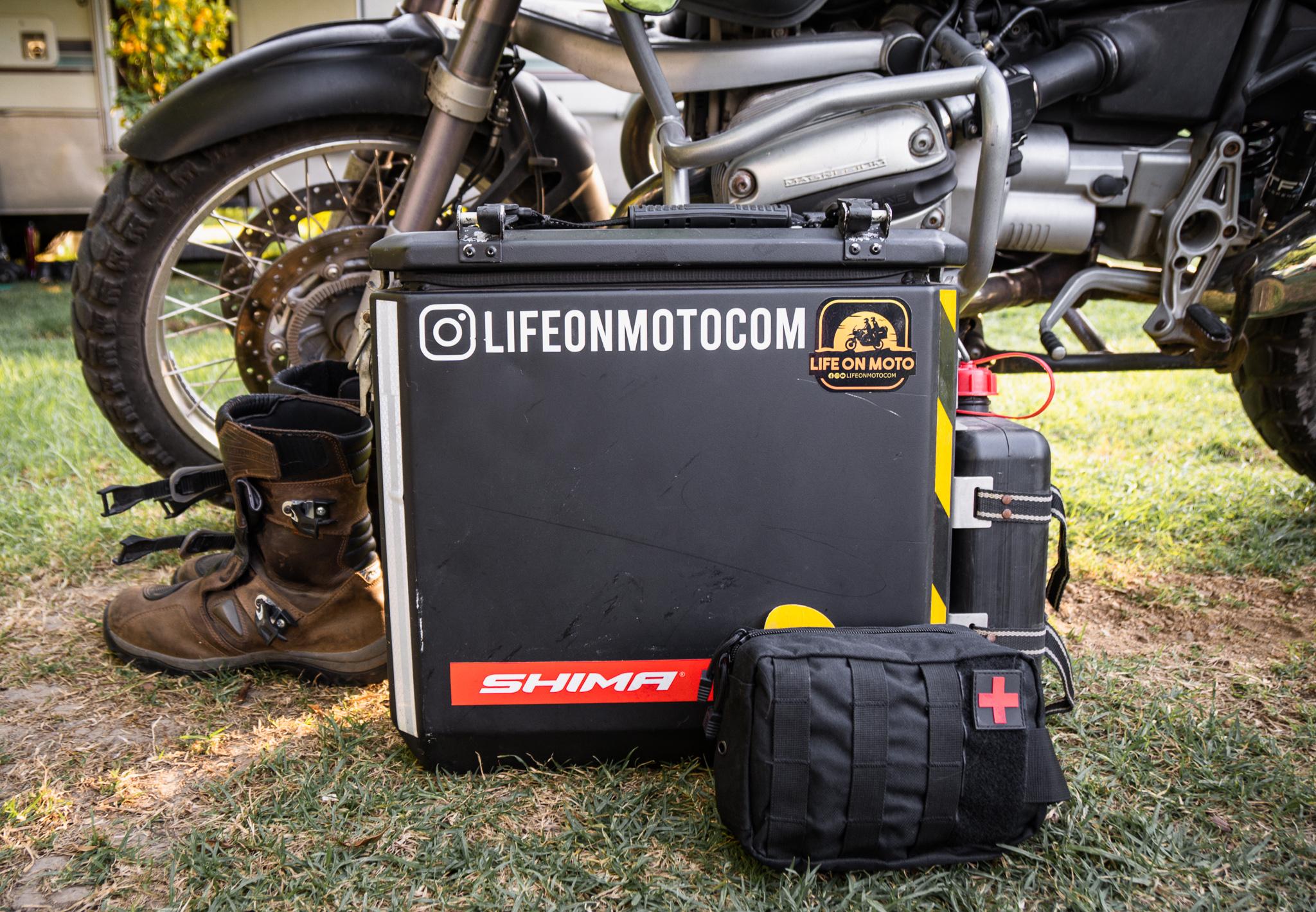
So what can be done to avoid getting infected? Basically, the only thing left is to protect ourselves from mosquito bites. What does this mean?
- First of all, we try to use repellents and products that repel mosquitoes. The most effective preparations are those with DEET min. 50% or icaradine min. 20%. They should be used according to the leaflet, as DEET is quite a strong agent. We took both.
- You can support yourself with all kinds of natural essential oils. Insects exceptionally dislike lemons, menthol, tea tree, etc. If you sleep in a tent, you can sprinkle the inside and light lemon candles in the evening.
- Wear clothes that will cover your arms and legs, mosquito nets will be useful for your face. It is known that this will not always be necessary, because in large cities during the day, the risk of contracting malaria are small.
- We do not go out after dark and before sunrise, when mosquitoes are more active.
- We do not sleep outdoors in regions where there is a risk of infection. It is good practice to check all the locks on the tent before going to bed. If we choose hotels it’s ones that have mosquito nets and put nets on the vents.
- We try to avoid spending the night near places with bodies of standing water – lakes, spillways, anywhere mosquitoes like to be.
As for malaria, you can start antimalarial prophylaxis before you travel by taking medication before, during and after your trip. This is an option to consider if you are leaving for 2 weeks, but for longer trips, taking these drugs for such a long time is not advisable. Besides, antimalarial drugs have a really impressive list of side effects, so we probably wouldn’t even choose to take them.
YELLOW FEVER
Yellow fever is one of the hemorrhagic fevers transmitted by mosquitoes, but unlike the diseases we wrote about earlier for yellow fever there is a vaccine. This is important because to some countries it is required, not just recommended (we throw up a map below). The certificate of acceptance of the vaccination is the international vaccination booklet, also called the yellow booklet, in which the doctor enters us, or at least should, all vaccinations. The yellow fever vaccine itself belongs to the “live” group, that is, the doctor injects us with a weakened yellow fever virus, to which our body reacts and begins to produce antibodies. After 7 days we acquire almost 100% immunity for life.
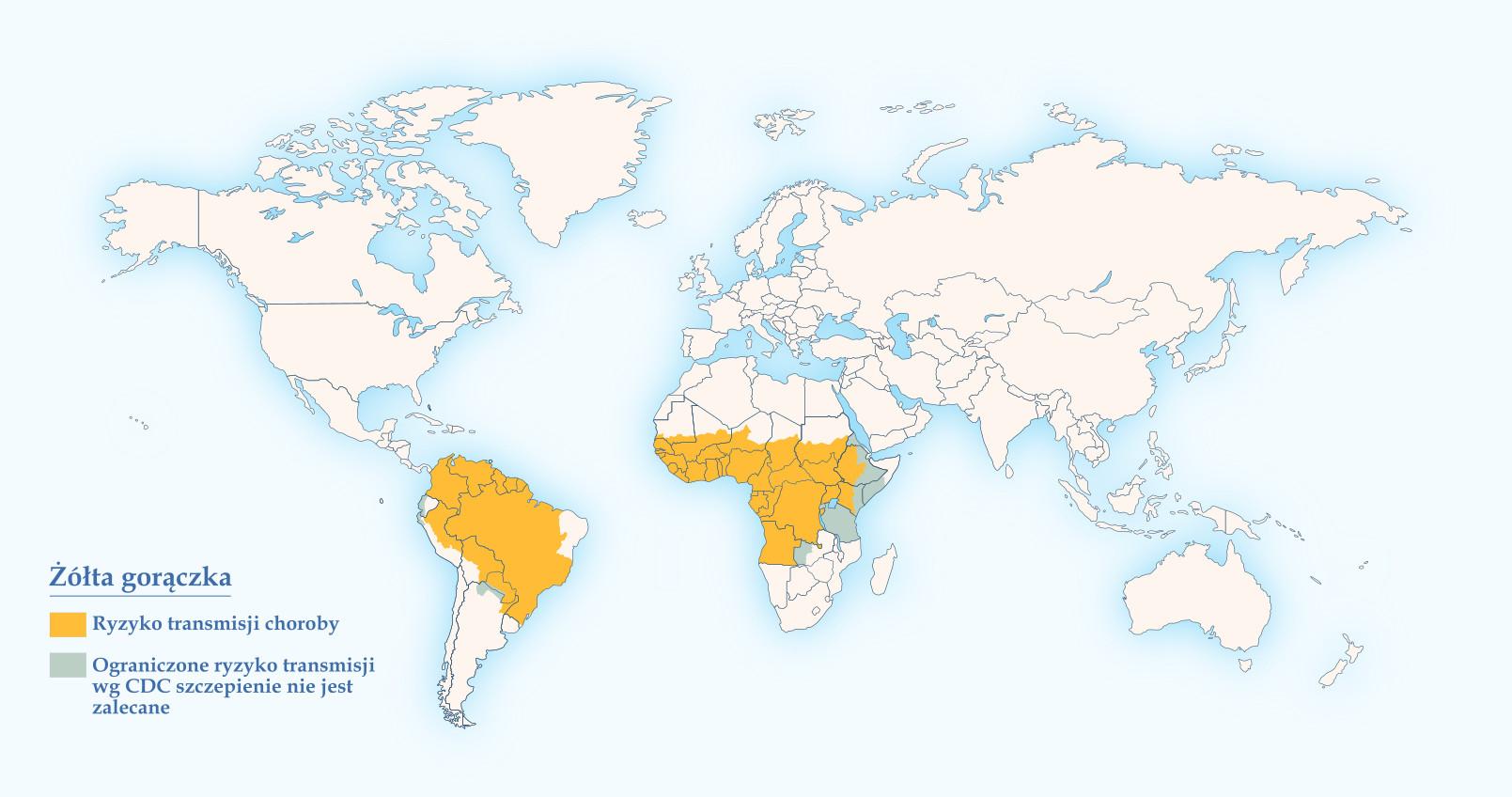
TRAVEL HEALTH – VACCINATIONS
We know that travelers approach vaccinations differently, especially low-budget travelers, some forgive recommended vaccinations and do only mandatory ones. We will not convince anyone whether it is worth it – it is an individual issue. The selection of vaccinations will also be an individual issue, which depends on the way you travel and the places you visit. For us it was obvious that if we have the opportunity to avoid getting sick, reduce the risk or simply take care of our health while traveling, we will certainly take advantage of it. Below we toss you information on what vaccinations we took.

- Tetanus – you can most often become infected during deeper cuts. In fact, everyone was vaccinated at least once in childhood, but the tetanus vaccination must be renewed, every 10 years.
- Diphtheria – a droplet-transmitted disease. In Poland, vaccination is mandatory, with a booster dose after 10 years.
- Polio (“Heine-Medina disease”) – a disease transmitted by the fecal-oral route. In Poland it is among the mandatory vaccinations, a booster dose after 10 years.
- Pertussis – a disease transmitted by the droplet route. In Poland it belongs to mandatory vaccinations, booster dose after 10 years.
- Typhoid fever – a disease that we can get infected by eating contaminated water, dirty fruit or waste. Vaccination is recommended when we travel to countries where standards are lower than in Poland. It must be renewed, every 3 years.
- Hepatitis A – we can become infected through contact with a sick person or by eating infected food. Vaccination is recommended when we travel to countries where standards are lower than in Poland.
- Hepatitis B – you can get infected through infected blood, usually in hospitals during surgery, transfusions. Vaccination is currently mandatory in Poland for children born after 1996. Those of older ages can be vaccinated, although in case of surgery, we will be vaccinated before anyway.
- Yellow fever – we wrote earlier.
- Covid – just having an indefinite booklet is insufficient, the date of the last dose is checked, so we took a booster dose before leaving.
TRAVEL HEALTH – TRAVEL INSURANCE
The last thing that probably occupied our heads the longest was travel insurance. Why is it worth getting insurance? Because the cost of medical treatment abroad is often horrendous, and while a visit to a general practitioner is swallowable, the cost of hospitalization or surgery is no longer quite so. Many travelers forgo insurance, assuming the most auspicious course of travel, many thinking that since nothing has happened to them so far, they will continue to do so. We, I guess, are a bit too old to see everything through rose-colored glasses and downplay the risks. :))) We also consider this to be a strongly selfish approach, because we are not really alone on the trip. With us is our family, our relatives, who often experience everything more than we do ourselves. Imagine their despair when they would find out about our accident and not be able to financially cover our medical expenses. Their helplessness. That’s why we don’t want to burden our families in any way, and it wasn’t even an option to go without any insurance.
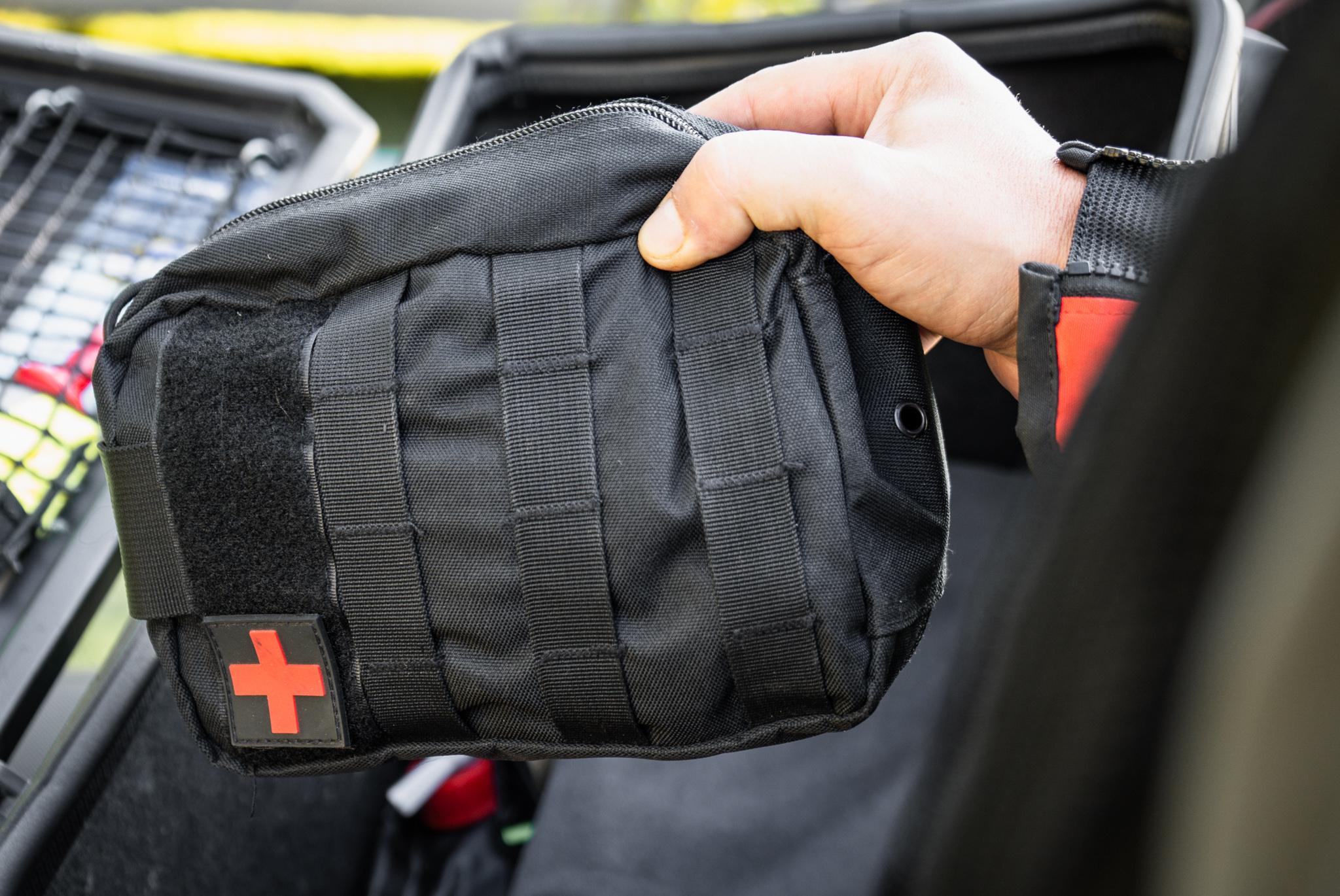
WHAT DID WE CARE ABOUT IN TRAVEL INSURANCE?
- The total amount of insurance actually could have covered our real medical expenses.
- The insurance covered motorcycle travel, because imagine that sometimes motorcycle travel is categorized as an extreme sport. We heard the story of a motorcyclist whose insurer did not inform him of this, and he took out ordinary insurance.
- The insurance did not exclude treatment for tropical diseases.
- The insurance covered treatment if he contracted Covid and covered quarantine costs.
- We also cared that in the event of the darkest ending, our corpse would be transported to Poland. We have seen enough grumblings of distraught families who not only experienced tragedy because they lost a loved one, but could not afford to transport the corpse and bury their loved one as they wanted. We shouldn’t write about it, to attract bad thoughts, but we think it’s probably important.
